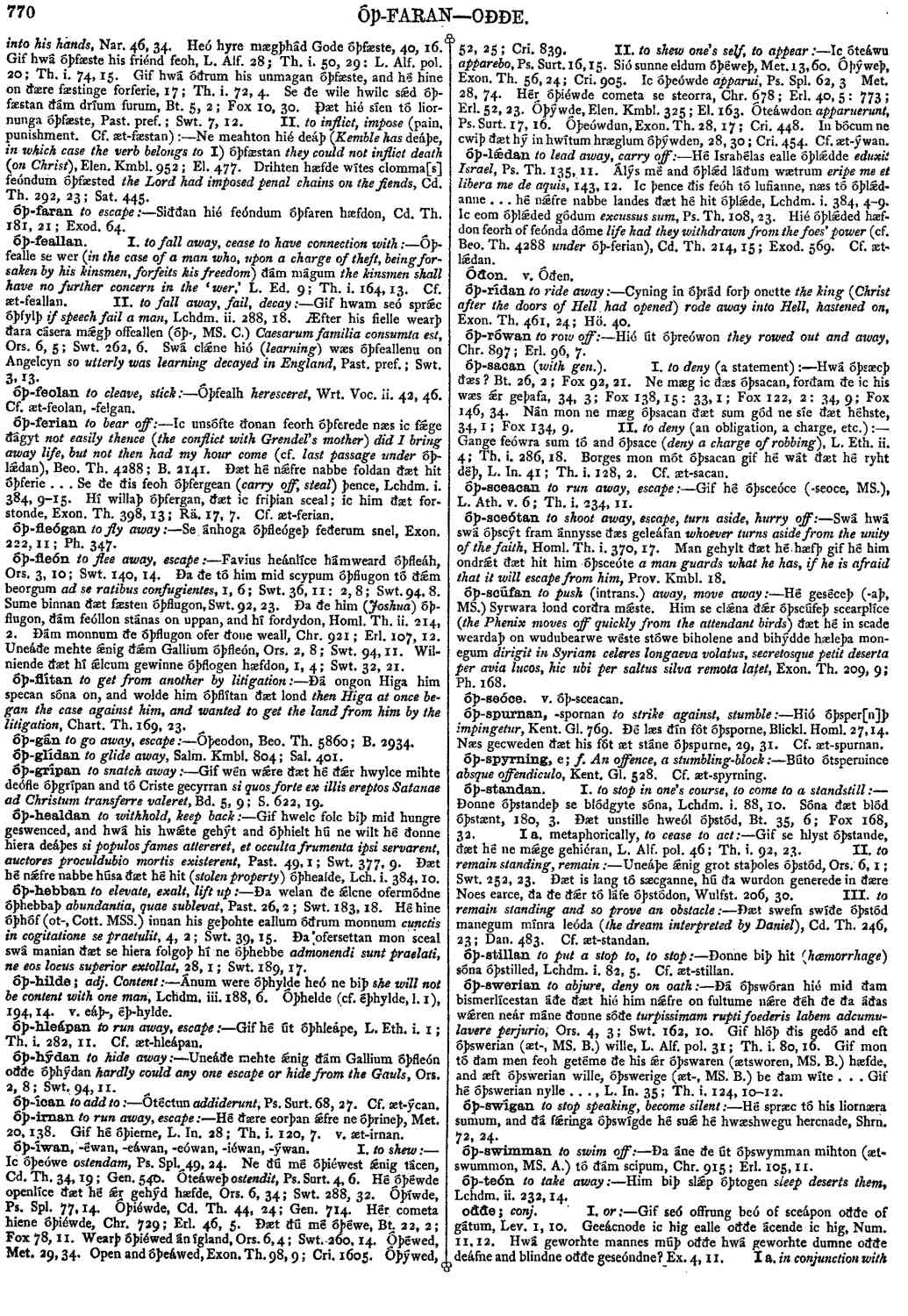óþ-standan
- verb [ strong ]
-
Ðonne óþstandeþ se blódgyte sóna,
- Lchdm. i. 88, 10.
-
Sóna ðæt blód óþstænt,
- 180, 3.
-
Ðæt unstille hweól óþstód,
- Bt. 35, 6; Fox 168, 32.
-
Ia. metaphorically,
to cease to act
:-- Gif se hlyst óþstande, ðæt hé ne mǽge gehiéran,- L. Alf. pol. 46; Th. i. 92, 23.
-
Uneáþe ǽnig grot staþoles óþstód,
- Ors. 6, 1; Swt. 252, 23.
- Ðæt is lang tó sæcganne, hú ða wurdon generede in ðære Noes earce, ða ðe ðǽr tó láfe ófstódon. Wulfst. 206, 30.
-
Ðæt swefn swíðe óþstód manegum mínra leóda (
the dream interpreted by Daniel),
- Cd. Th. 246, 23; Dan. 483.
- Cf. æt-standan
Bosworth, Joseph. “óþ-standan.” In An Anglo-Saxon Dictionary Online, edited by Thomas Northcote Toller, Christ Sean, and Ondřej Tichy. Prague: Faculty of Arts, Charles University, 2014. https://bosworthtoller.com/25077.
Checked: 0